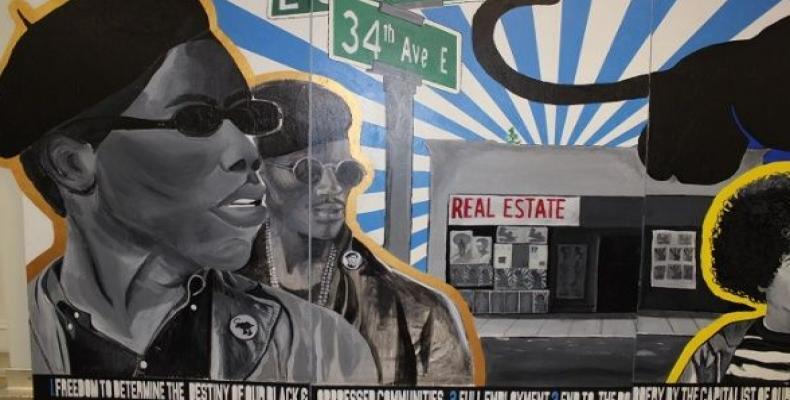New York, August 13 (RHC)-- Robert Seth Hayes, a member of the Black Panthers Party (BPP) and the Black Liberation Army in the United States, has been released on parole after 45 years in prison for murdering a New York City transit officer in 1973.
"The parole commissioners recognized his progress after serving 45 years in prison and granted his parole application at his 11th parole hearing," a statement from the New York City Jericho Movement reads. "He is looking forward to being reunited with his family and friends. We welcome him home! We spoke with Seth today, and he is grateful to all of his friends and supporters. Once he gets settled in, he plans to write a statement of his own."
Despite his good behavior and being eligible for parole since 1998, Hayes had been denied 10 times due to his political background and ideology before finally being released. He is one of the few revolutionaries and members of Black liberation organizations that have been granted freedom. Many of his comrades are still behind bars and others have died in prisons around the country.
Hayes was born in 1947 and grew up in the poor neighborhoods of New York City, learning from different realities of the African American community. He served in the Vietnam War, was wounded and received several military awards.
He joined the BPP after his unit was ordered to help pacify the social movements that followed after the assassination of Martin Luther King Jr. "It was the saddest day of my life," said Hayes, "and I could never identify again with the aims of the armed forces or the government."
In 1973, Hayes was convicted of the murder of police officer Sidney Thompson, other attempted murders, multiple counts of robbery, weapons possession and collective association, and sentenced to 25 years to life in prison.
The Parole Board had denied him parole until now, arguing he remained "a threat to society." He was finally granted freedom on his 11th parole hearing on July 24 of this year.
Hayes' health had deteriorated since authorities failed to provide him adequate medical attention for his Hepatitis C and Diabetes, diagnosed in 2000.
There are at least 19 activists from Black liberation movements still behind bars, including Romaine 'Chip' Fitzgerald, Jalil Muntaqim, Sundiata Acoli and Mumia Abu-Jamal. Many were jailed in their early twenties, accused of similar charges as they joined organizations and some took up on arms to fight for the liberation of their people.
U.S. Black Panther Robert Seth Hayes released after 45 years in prison

Rilataj Artikoloj
Komentarioj
Lasu komentarion
Ĉiuj kampoj bezonatasPliaj Vidaĵoj
- Kreskas rekono al laboristoj de la elektra sektoro
- Usono adoptas decidojn en la ĝusta direkto, sed la blokado restas
- La BRICS-emblemo en Brazilo en 2025 estos la sumauma-kotonarbo
- Kubo kaj Ĉinio fortigas ligojn kaj proksimecon
- La mondo celebras la decidon de Usono pri Kubo kaj postulas ĉesigon de la ekonomia sieĝo

